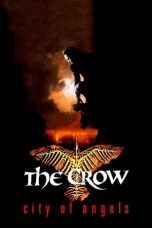- Source: Acts 2
Acts 2 is the second chapter of the Acts of the Apostles in the New Testament of the Christian Bible. The book containing this chapter is anonymous but early Christian tradition asserted that Luke composed this book as well as the Gospel of Luke. This chapter records the events on the day of Pentecost, about 10 days after the ascension of Jesus Christ.
Text
The original text was written in Koine Greek. This chapter is divided into 47 verses.
= Textual witnesses
=Some early manuscripts containing the text of this chapter are:
Papyrus 91 (3rd century; extant verses 30–37; 46–47)
Codex Vaticanus (325–350)
Codex Sinaiticus (330–360)
Codex Bezae (~400)
Codex Alexandrinus (400–440)
Codex Ephraemi Rescriptus (~450)
Codex Laudianus (~550)
= Old Testament references
=Acts 2:16–21: Joel 2:28–32 and Isaiah 44:3
Acts 2:25–28: Psalm 16:8–11
Acts 2:29: 1 Kings 2:10
Acts 2:30: Psalm 132:11
Acts 2:31: Psalms 16:11
Acts 2:34–35: Psalm 110:1
= New Testament references
=Acts 2:21: Romans 10:13
Coming of the Holy Spirit on the Day of Pentecost (2:1–43)
The biblical narrative of Pentecost is given in the second chapter of the Acts of the Apostles. Present were about one hundred and twenty followers of Christ (Acts 1:15), including the Twelve Apostles (i.e. the eleven disciples and Matthias, who had replaced Judas Iscariot), Jesus' mother Mary, various other women disciples and Jesus' brothers (Acts 1:14). Their reception of the Holy Spirit in the Upper Room, and their empowerment to speak in tongues, are recounted in Acts 2:1–6:
= Verses 1–7
=¹When the day of Pentecost had come, they were all together in one place. ²And suddenly from heaven there came a sound like the rush of a violent wind, and it filled the entire house where they were sitting. ³Divided tongues, as of fire, appeared among them, and a tongue rested on each of them. ⁴All of them were filled with the Holy Spirit and began to speak in other languages, as the Spirit gave them ability.
⁵Now there were devout Jews from every nation under heaven living in Jerusalem. ⁶And at this sound the crowd gathered and was bewildered, because each one heard them speaking in the native language of each. ⁷Then they were all amazed and marveled, saying to one another, “Look, are not all these who speak Galileans?
While those on whom the Spirit had descended were speaking in many languages, the gathering crowd's reaction progressed from perplexity (verse 6) to amazement (verse 7). In verse 6, "this sound" (Greek: της φωνης ταυτης, tēs phōnēs tautēs) may refer to "the sound from heaven, as of a rushing mighty wind" in verse 2, or to the speaking in tongues in verse 4. Henry Alford suggests that "we may safely decide for the former reference" (the sound from heaven) because the writer would have written "φωναί" (phōnai: plural) if the multiple voices spoken in tongues was intended. The paraphrase in The Living Bible emphasizes the same reading: "when they heard the roaring in the sky above the house".
Apostle Peter then stood up with the eleven and proclaimed to the crowd that this event was the fulfillment of the prophecy of Joel (in Book of Joel 2:28–29): "…I will pour out my Spirit…". (Acts 2:17).
= Verse 15
=For these are not drunk, as you suppose, since it is the third hour of the day.
"The third hour of the day" (about 9:00 AM): Peter explains that it is only breakfast time.
= Verses 16–21
=¹⁶But this is what was spoken by the prophet Joel:
The extended quotation from Joel 2:28–32 (LXX) is to support that this event is something predicted in Scripture, and it clarifies some points about the apostolic proclamation:
The ecstatic speech is to be identified with the biblical gift of prophecy, as the work of the same Spirit of God.
This is a phenomenon of 'the last days' (verse 17), but is a stage before the final 'day of the Lord' (verse 20).
= Verses 22–24
=²²"Men of Israel, hear these words: Jesus of Nazareth was a man attested to you by God with powerful works and wonders and signs, which God did through Him in your midst, as you yourselves know. ²³You have taken Him, who was handed over to you by the ordained counsel and foreknowledge of God, and by lawless hands have crucified and killed Him, ²⁴whom God raised up by loosening the pull of death, because it was not possible that He should be held by it.
Peter then turns to the question, "Who was Jesus?", appealing to many people in the audience who had witnessed the miracles performed by Jesus, as a divine attestation of his ministry in the midst of his people (verse 22). Jesus' death is the responsibility of three groups: (1) 'the immediate agency' ('lawless hands' or 'lawless men'); (2) 'the proximate motive force' (the local audience which had witnessed Jesus' ministry, verses 22–23); and behind both of those, 'the divine plan' (verse 24).
"Loosening" (KJV/NKJV: "having loosed"): or having "destroyed or abolished"
"Pull of death" (KJV/NKJV: "pains of death"): also in the sense of "birth pangs"
= Verses 25–28
=Verses 25 to 28 quote Psalms 16:
²⁵For David says concerning Him:
According to a Christian interpretation, verse 27 recalls the belief in the preservation of the mortal bodies of the saints, identified with the people whose souls weren't condemned to the Hell. The latter is referred with the Hebrew word Sheol.
It has also been seen as a prophecy of Jesus' Harrowing of Hell, while verse 26 would have predicted the final Resurrection of the flesh for which the "body also will rest in hope".
Furthermore, the paths of life of Acts 2:28 recall the more well known Jesus self-definition as being "the way, the truth, the life" (John 14:6, even using the same Greek words (respectively: hodous zōēs and hodos, alētheia, zōē)
= Verses 32–36
=Verses 34 and 35 quote Psalms 110:1 to conclude saying:
Therefore let all the house of Israel know assuredly that God has made this Jesus, whom you crucified, both Lord and Christ.
= Verse 38
=Then Peter said to them, "Repent, and let every one of you be baptized in the name of Jesus Christ for the remission of sins; and you shall receive the gift of the Holy Spirit."
"Remission": or "forgiveness"
Acts 2:41 then reports that about 3000 people were baptized and added to the number of believers.
= Verse 41
=Then those who gladly received his word were baptized; and that day about three thousand souls were added to them.
It would take a long time to immerse all 3,000 people in a single public pool such as Pool of Siloam, so the apostles probably made use of many mikvehs around the Temple Mount. A "mikveh" is a stepped immersion pool used by Jews for purification, before prayer or worship, to become ritually clean. Archaeological excavations in Jerusalem (and other Jewish communities) have discovered hundreds of mikvehs from before, during, and after the time of Jesus.
The fact that many understood in their native language, what the Spirit was saying demonstrates that the first miracle the Holy Spirit carried out was the translation of the Gospel. This message is one that is communicating "God's deeds of power". Such miracle carries the undertone that the gospel, would be for a diverse group that for a long time had been divided. "Whereas in Babel humanity was divided by different tongues, in Pentecost that division was overcome."
= Location of the First Pentecost
=Traditional interpretation holds that the Descent of the Holy Spirit took place in the Upper Room, or Cenacle, on the day of Pentecost (Shavuot). The Upper Room was first mentioned in Luke 22:12–13. This Upper Room was to be the location of the Last Supper and the institution of Holy Communion. The other mention of an "upper room" is in Acts 1:13–14, the continuation of the Luke narrative, authored by the same biblical writer.
Here the disciples and women waited and they gave themselves up to constant prayer, until the arrival of the "wind" mentioned above.
A description of the first Church (2:44–47)
Acts 2:44–47 contains a description of the earliest church, giving a practical view of how the church members acted. The verses cover several aspects of life:
The believers held everything in common
They sold property and possessions so as to give to anyone who was in need
They met together in the temple courts each day
They ate together in each other's homes.
See also
2nd Chapter of Acts (a musical group)
Christian socialism
From each according to his ability, to each according to his needs
Pentecost
Simon Peter
Zwijndrechtse nieuwlichters, a 19th-century Protestant sect which adopted an Acts 2-derived lifestyle
Related Bible parts: Psalm 16, Psalm 110, Joel 2, Matthew 22, Mark 12, Luke 20, Acts 1, Acts 3, Acts 9, Acts 10, 1 Corinthians 15, Ephesians 2, Hebrews 1
References
Sources
Alexander, Loveday (2007). "62. Acts". In Barton, John; Muddiman, John (eds.). The Oxford Bible Commentary (first (paperback) ed.). Oxford University Press. pp. 1028–1061. ISBN 978-0199277186. Retrieved February 6, 2019.
Coogan, Michael David (2007). Coogan, Michael David; Brettler, Marc Zvi; Newsom, Carol Ann; Perkins, Pheme (eds.). The New Oxford Annotated Bible with the Apocryphal/Deuterocanonical Books: New Revised Standard Version, Issue 48 (Augmented 3rd ed.). Oxford University Press. ISBN 9780195288810.
Gonzalez, Justo L. (2001). Acts: The Gospel of the Spirit. Mary Knolls, New York: Orbis Books. ISBN 1-57075-398-9.
Kirkpatrick, A. F. (1901). The Book of Psalms: with Introduction and Notes. The Cambridge Bible for Schools and Colleges. Vol. Book IV and V: Psalms XC-CL. Cambridge: At the University Press. Retrieved February 28, 2019.
External links
Acts 2 King James Bible - Wikisource
English Translation with Parallel Latin Vulgate Archived 2021-03-05 at the Wayback Machine
Online Bible at GospelHall.org (ESV, KJV, Darby, American Standard Version, Bible in Basic English)
Multiple bible versions at Bible Gateway (NKJV, NIV, NRSV etc.)
Acts 2 Parallel
Kata Kunci Pencarian:
- Mercury – Acts 1 & 2
- Kisah Para Rasul
- Ecclesiastical Titles Act 1851
- Helium
- Misa merah
- Alfabet fonetik NATO
- Undang-Undang Persatuan 1800
- Classic 100 Music of France
- Simon Petrus
- Keandalan sejarah Kisah Para Rasul
- Acts 2
- Acts 2 Network
- Joe's Garage
- Mercury – Acts 1 & 2
- Acts of the Apostles
- Pentecost
- Speaking in tongues
- List of acts of the Parliament of Great Britain
- Acts 17
- Book of Joel
- 1
- 2
Carandiru (2003)
I Am Lisa (2020)
The Count of Monte-Cristo (2024)
Avengers: Infinity War (2018)
Vina: Before 7 Days (2024)
No More Posts Available.
No more pages to load.














